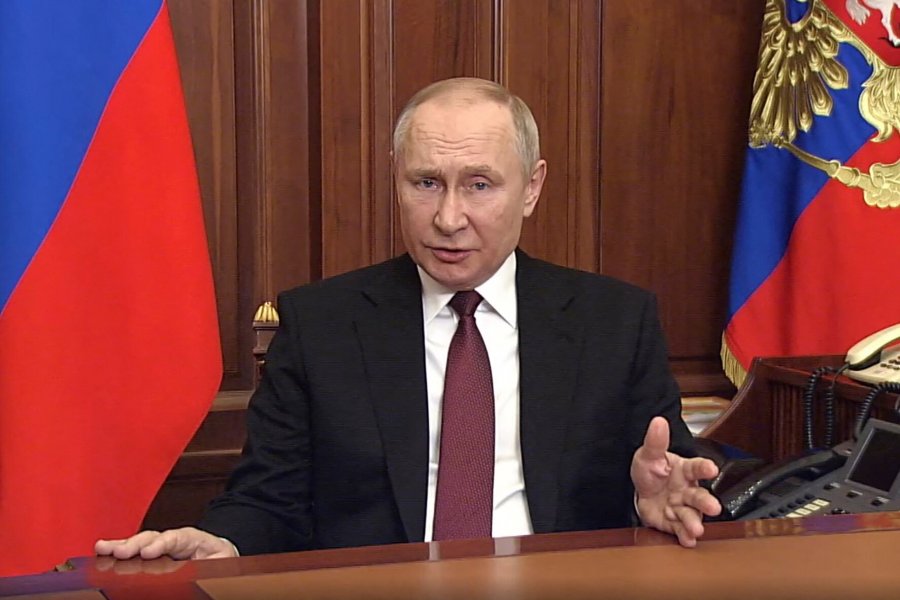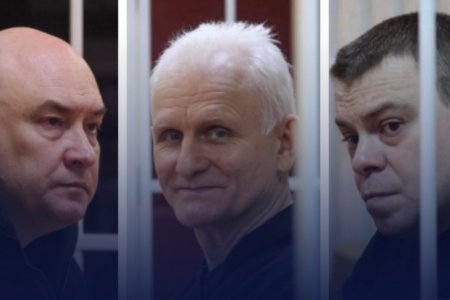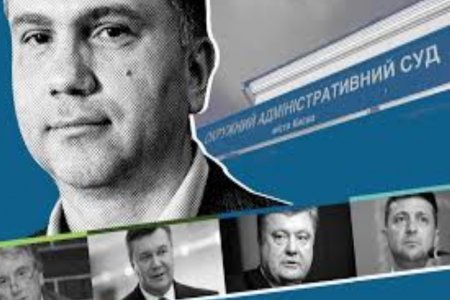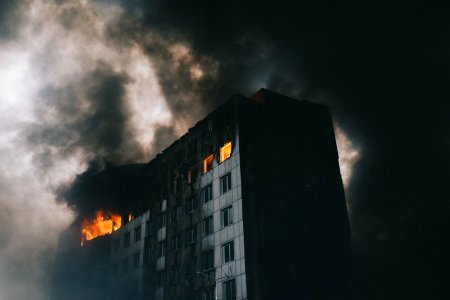
US President Donald Trump’s claim that his Ukrainian counterpart, Volodymyr Zelenskyy is a ‘dictator’ with only 4% support must have caused mirth and celebration in the Kremlin, only surpassed by his suggestion that Ukraine and its President were responsible for Russia’s full-scale invasion and war of aggression against Ukraine. The best news for Russian leader Vladimir Putin was, however, the insistence from Trump and others in his administration that elections in Ukraine must be held soon after a so-called ‘ceasefire’.
Russia has flouted every agreement signed with Ukraine, as well as its commitments under international law. It is exactly 10 years this month since Putin signed the so-called Minsk II Accords agreeing to a ceasefire which was unilaterally flouted by the Russian and Russian-controlled fighters until they had seized Debaltseve (a strategic city in Donetsk oblast). Both the Conflict Intelligence Team and Bellingcat have presented evidence that Putin himself ordered the offensive against Debaltseve and that Russian military were deployed in the fighting.
There are no grounds for believing that Moscow would observe any negotiated ceasefire in 2025. Even if the Kremlin was so intent on ensuring ‘elections’ that it did not openly infringe the ceasefire, Ukrainians, who have seen their homes, hospitals, schools and places of worship mercilessly bombed for three years, would have every reason to distrust them. Huge numbers of Ukrainians living under occupation would be deprived of their vote, not to mention the difficulties of ensuring that Ukrainians displaced from their homes, or living as refugees in other countries could exercise their right to vote. They would, undoubtedly, be deprived of the right to themselves stand for election and would have minimal access to information about the candidates. All of this is of major relevance if we are talking of free and fair elections, and not the electoral stunts which Russia stages at home and on occupied Ukrainian territory. Although Trump largely echoed the claims made by the Kremlin about Zelenskyy’s supposed illegitimacy, both presidential and parliamentary elections would, presumably, be due if a ceasefire was used as pretext for cancelling martial law.
There is a disturbing sense of déjà vu about all of this, albeit with the unexpected nuance presented by President Trump’s allegations. Both the first and the second Minsk Accords (in 2014 and 2015, respectively) assumed ‘elections’ in all parts of the Donetsk and Luhansk oblasts, including the Russian proxy ‘Donetsk and Luhansk people’s republics’ [occupied Donbas]. It was constantly claimed that these ‘elections’ must take place before control was (or was not …) regained over the border between Ukraine and Russia through which Russia was regularly transporting Moscowmilitary hardware, ammunition and fighters. Moscow tried to claim that Ukraine was deliberately stalling, although it was clear that there could be no free and fair elections in accordance with Ukrainian legislation when such elections would effectively be at gunpoint. Nor were other circumstances conducive to free elections. As reported, occupied Donbas was rated as only minimally higher than North Korea in Freedom House’s Freedom in the World 2021 report.
First Moscow, now Trump, have asserted that Zelenskyy is not a legitimate President as elections have not taken place since 2019. This is in full accordance with Ukraine’s Constitution which prohibits the holding of elections during martial law, with the latter needed given Russia’s war of aggression. In fact, Putin did not recognize President Petro Poroshenko either, and there is nothing to suggest that he would recognize another Ukrainian President, unless he succeeds in dictating who this will be. It is undoubtedly because the Kremlin hopes to influence new elections that they are pushing so hard for them.
Olha Aivazovska is the Head of OPORA, one of Ukraine’s most important civic electoral watchdogs. She commented early on 19 February about elections which are the coinciding “evident demand and need of the Russians and the wish of the new US administration”
The Russians have always weaponized elections, she says, with these “the cheapest and easiest method of manipulation, although not always effective for them. They have on several occasions lost elections with their representatives in Ukraine, yet expect to receive an incredible present in order to drive us into a process which they will turn into chaos, and they’ll then accuse us of every kind of sin against democracy.
The post-truth world is such that a dictator wants to teach Ukraine democracy. However, the good news for us is that, if we mobilize, we will win this battle, just as we have several times before.
Answer No. 1: Do not play at elections with a dictator. We should not prove anything to him since, if you look at the facts, at the last Russian presidential elections, there were no opponents, nor media, nor observers. This is not ‘whataboutism’, it is a statement of fact.”
Answer No. 2, Aivazovska says, is relevant also to Trump and his administration. America cannot randomly stipulate the procedure: ceasefire – elections – peace. If OSCE-ODIHR alone require at least nine months to organize observers, she estimates that Ukraine will need at least 12 months to prepare legislation the process, restoration and reconstruction of electoral infrastructure. There must also be, she stresses, “very specific guarantees of safety and instruments for punishing the aggressor state.”
The Russians can violate the ceasefire any number of times, as they have nothing to lose, unlike Ukraine who stands to lose everything if it initiates an election campaign and cannot finish it in a legitimate way because of the danger of disruption or provocation.
It is because of the evident need for proper preparation and security guarantees that OPORA have developed a roadmap for the first post-war elections and the order that specific parts of the process, lasting around 12 months, should take. There are a number of key requirements, such as the reopening of the Venice Commission office in Kyiv, closed since 2022, which will only happen once real security guarantees are in place.
The key requirement, Aivazovska notes, is in the order. Peace (not just a proclaimed ceasefire) must take place at the same time as the elections. Preparations for the elections can take place in advance, but the elections themselves can only be in peacetime. “This follows the logic of our Constitution and the legal regime of martial law, after all, without peace, it would be suicidal to suspend this. Peace is the precondition for the full transit of power, and reinstatement of all rights and freedoms”.



